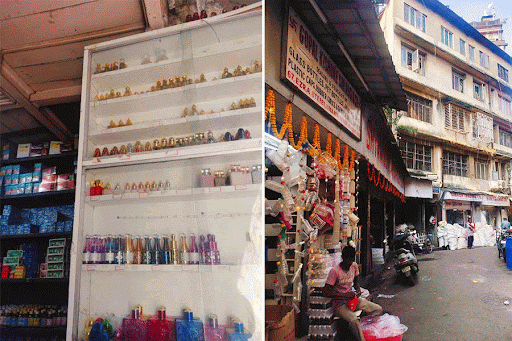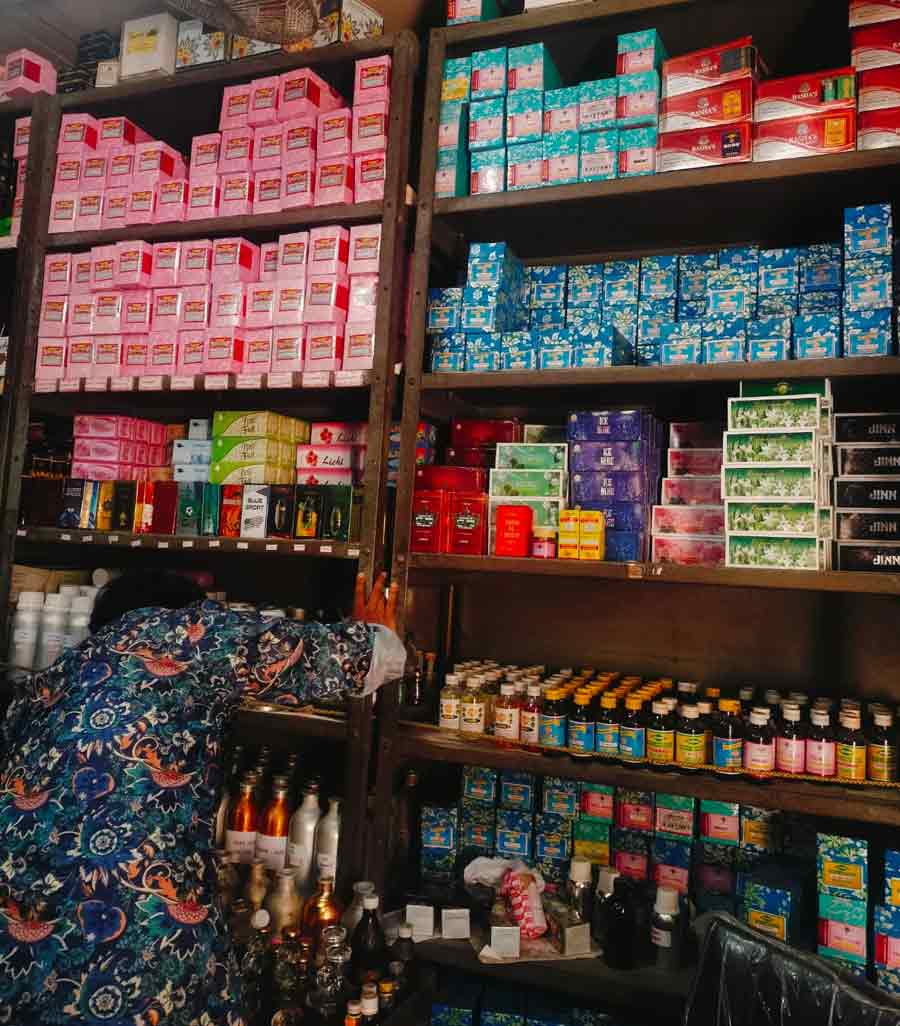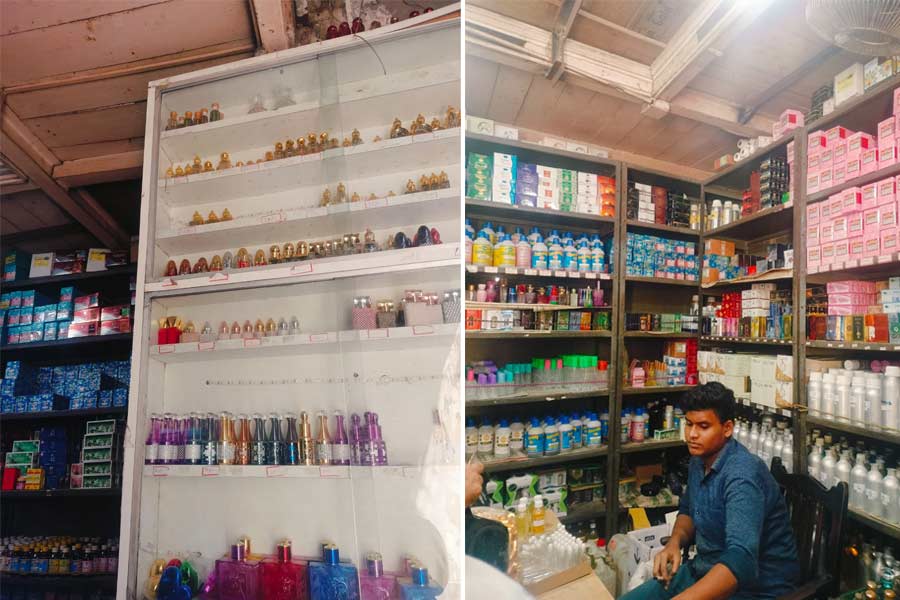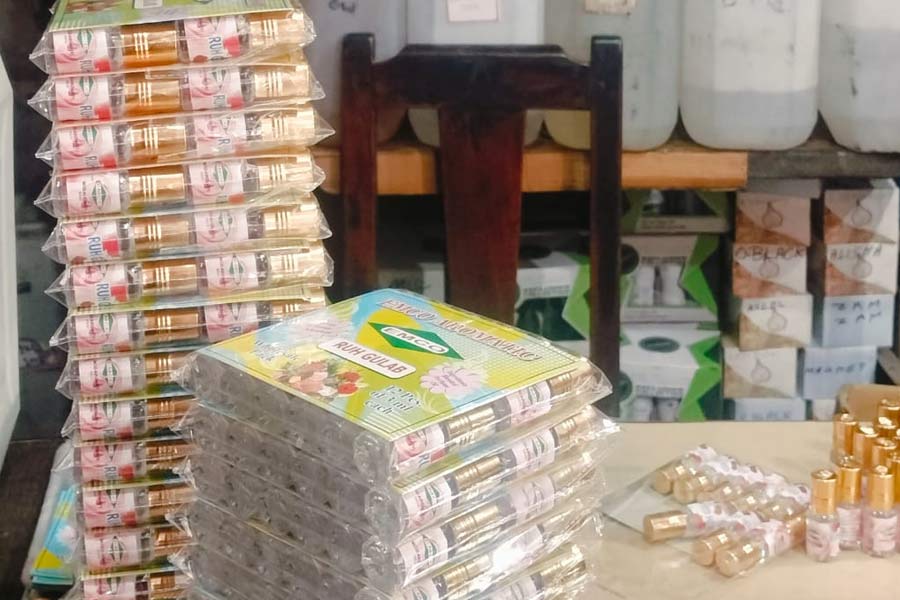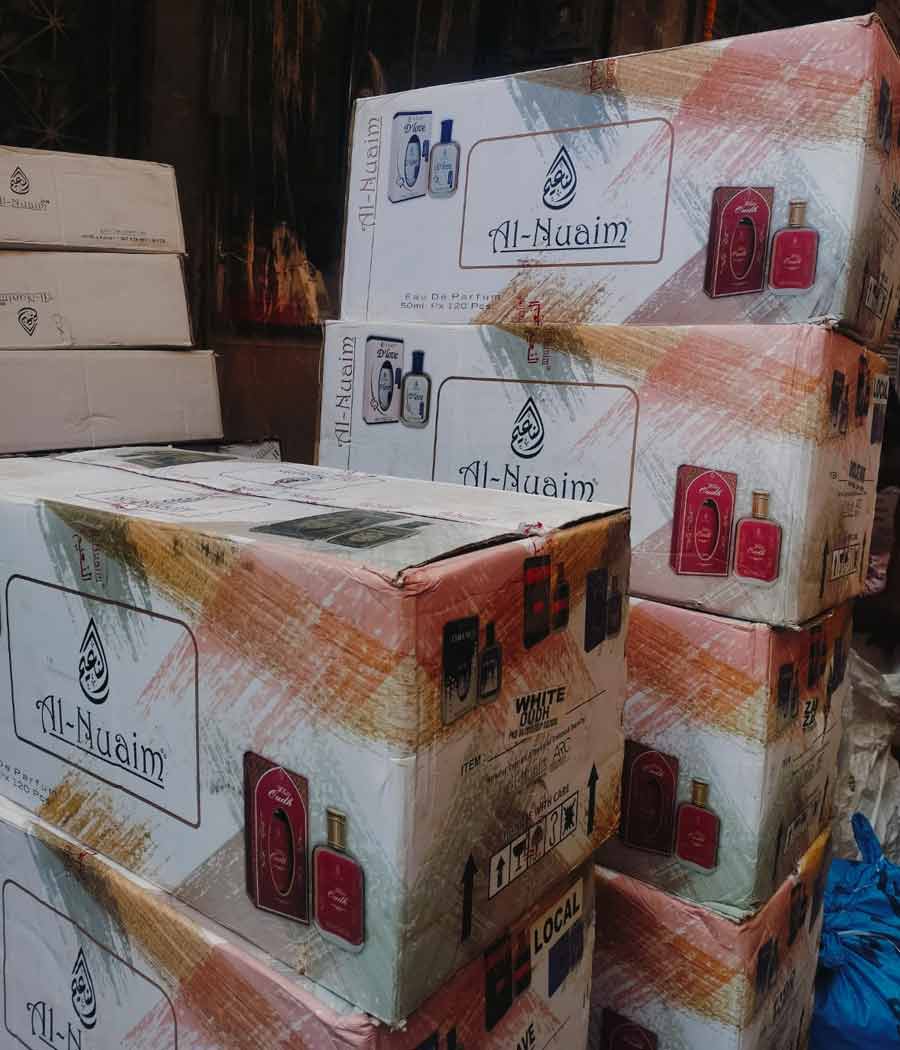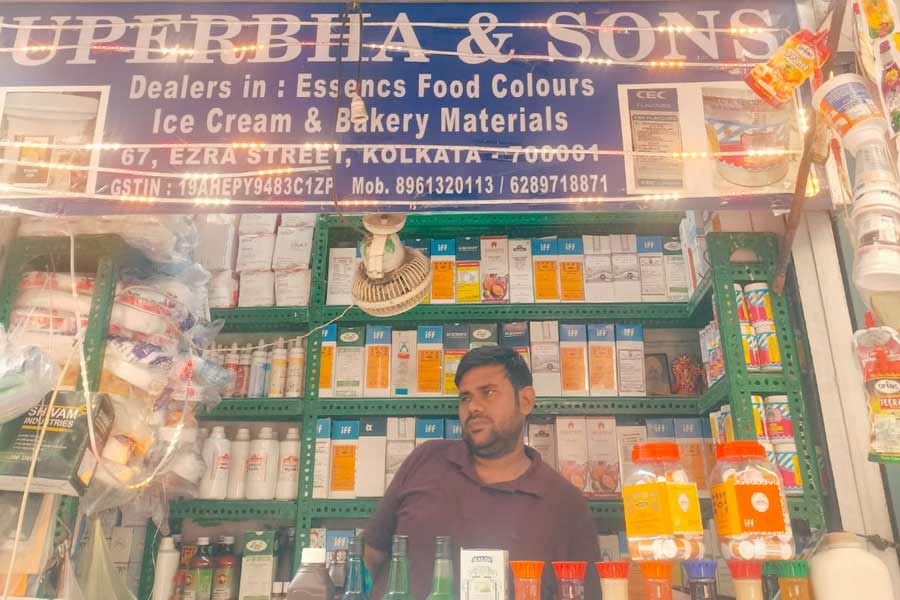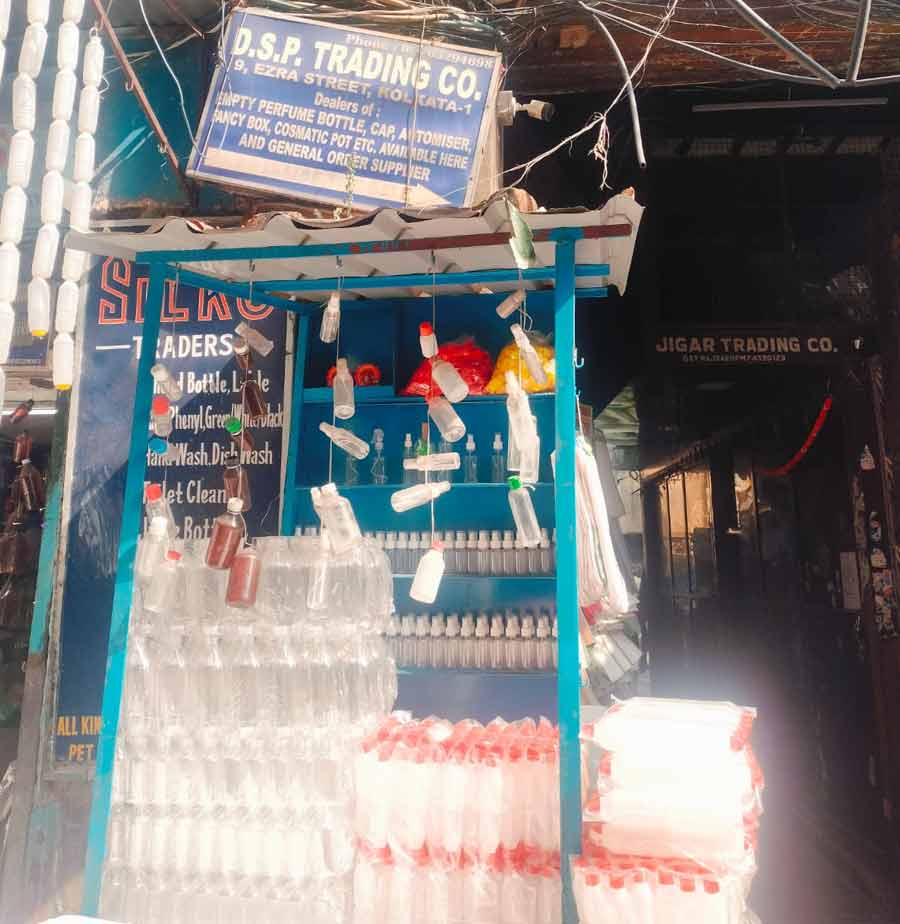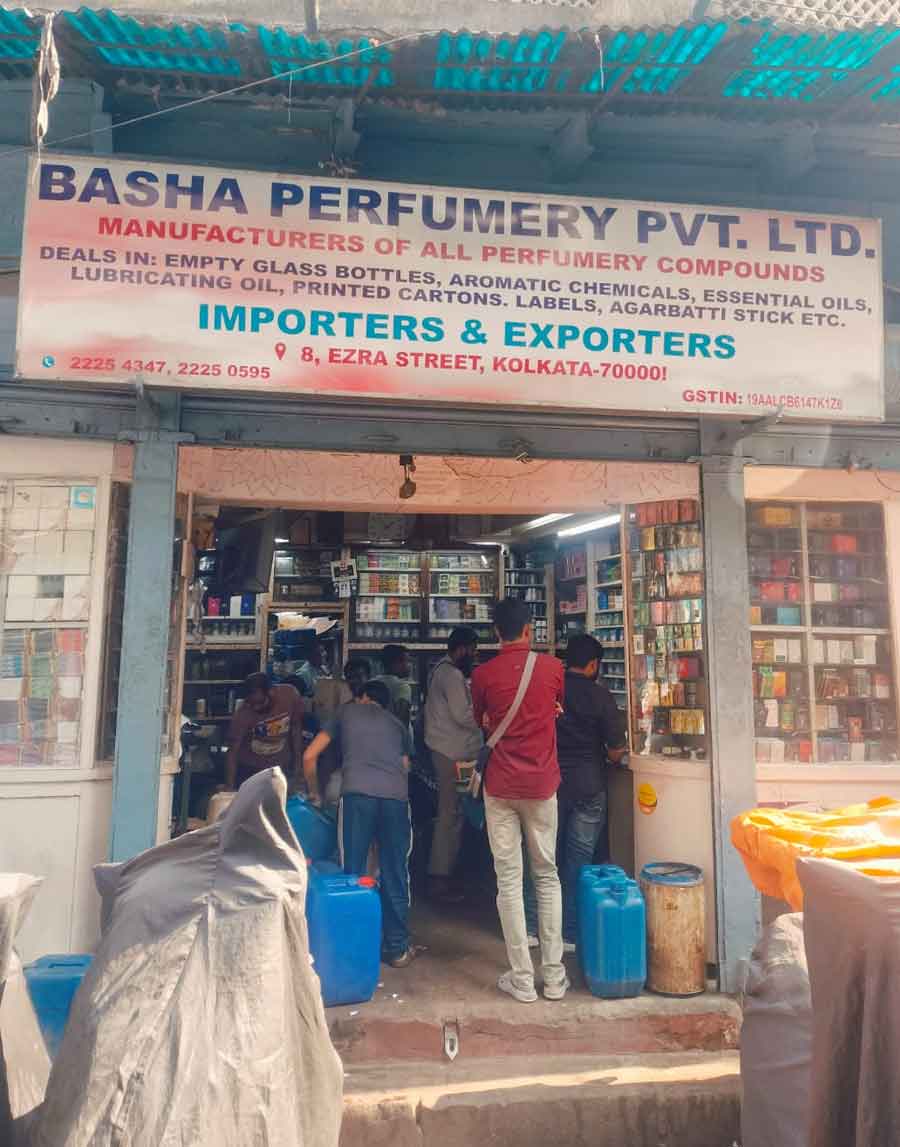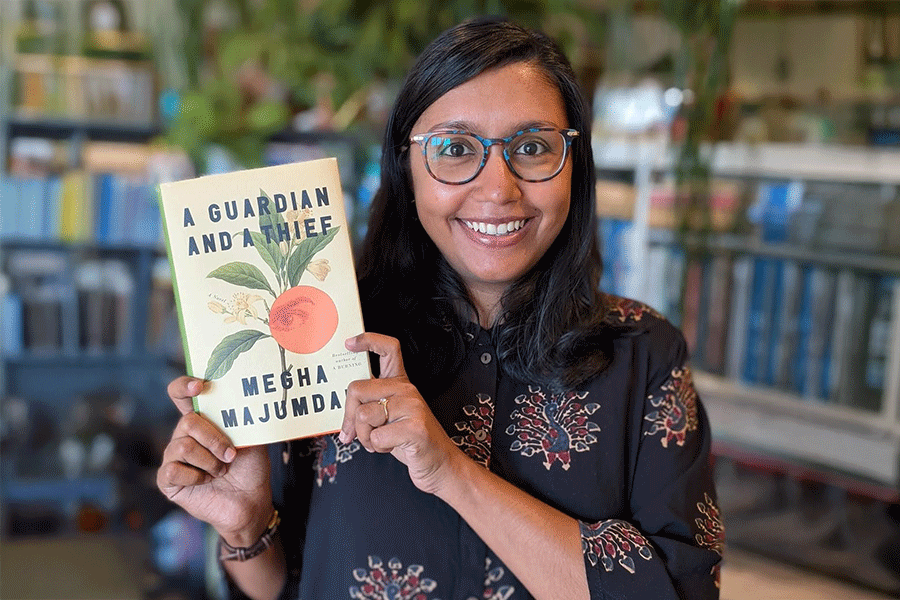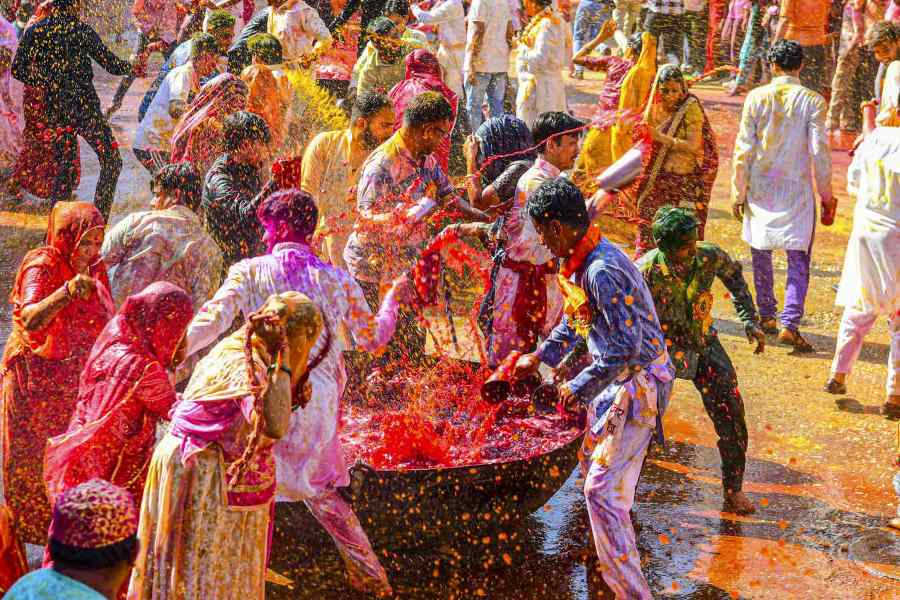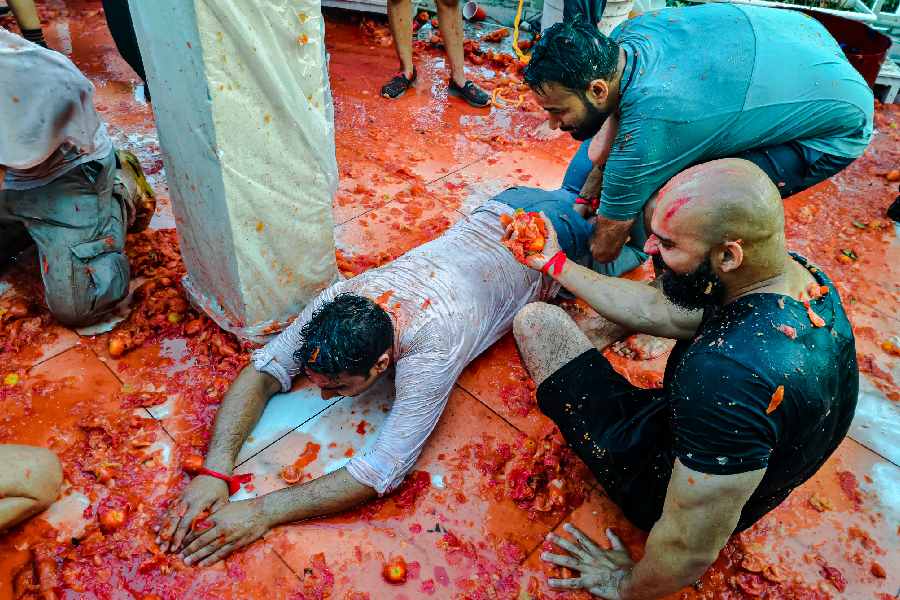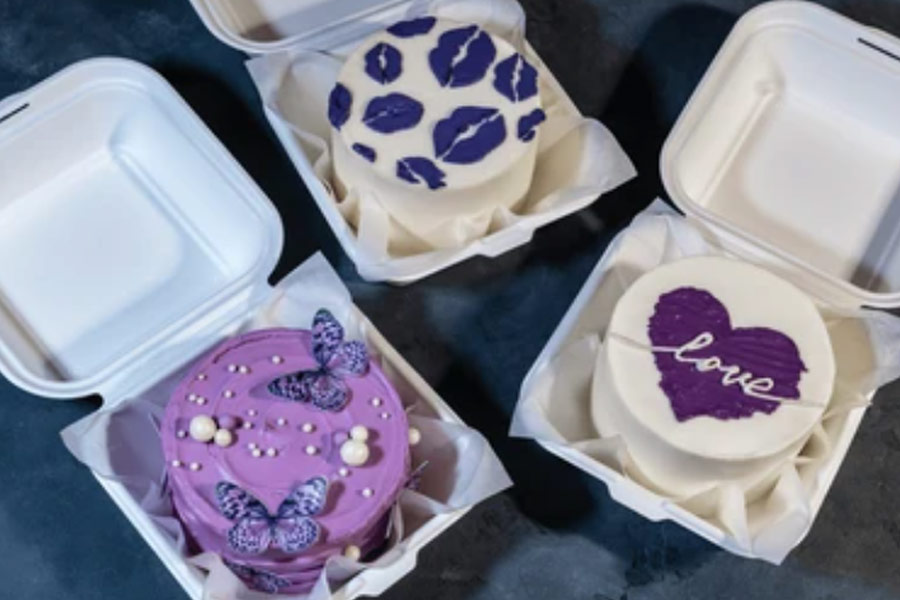“If you can’t smell the fragrance, don’t come into the garden of love.”
These words by Rumi echo in your mind the moment you step into the narrow stretch off Ezra Street in Kolkata.
Now known for its electric light products, this lane was once Kolkata’s Khushboo Galli or the fragrance lane. Today, most old attar shops have disappeared but the fragrance lingers in a half-forgotten haze.
The word attar comes from the Persian itir, meaning fragrance. It is an essential oil derived from natural sources like flowers, herbs, or wood. And attar’s making is as much science as it is art.
Traditionally, it involves a centuries-old technique called hydrodistillation, using a copper still (deg) and a receiving vessel (bhapka).
Persian physician Ibn Sina (Avicenna) is credited with perfecting the process of distilling the essence of roses into oil.
Mughal rulers used fountains that sprayed rose attar. In Awadh, perfumed air was a sign of nobility.
The journey of attar, from Ibn Sina’s lab to Kolkata’s Ezra Street, seems fascinating. The tradition now survives through the last few shops left on Khushboo Galli.
First in that fading row of shops is Metro Aroma Supply, a 75-year-old shop that has seen four generations pass through its doors. It is run today by Ismail, whose grandfather Mainuddin founded it.
Inside, small glass bottles line the shelves. They hold bel, rajnigandha, lily, jasmine, rose, and sandalwood fragrances. Their labels are handwritten.
“We’ve been here for almost 70 years,” says one of the shop caretakers. “Our peak season is Ramzan. Earlier, people came from all over the city. Now, it’s mostly the old customers who remember us.”
The business of attar, like the fragrance itself, depends on intimacy.
One can’t simply browse it online.
“Don’t rub it on your clothes,” says a regular customer, showing where to apply it — “on your wrist, behind the knees, behind the ear lobes, and on the forehead. Always on skin. And never rub.”
But the scent of attar is fading.
In the age of instant deliveries and digital retail, the business struggles to survive.
Apps now deliver branded perfumes to your doorstep. Local sellers can’t keep up with the algorithmic speed of modern convenience.
Yet, not everyone sees the online boom as a threat. Kshitij Khurana, who runs Khuranaa Trading Company nearby, believes there’s still a loyal customer base for authenticity.
“There’s no problem with online shops,” he told My Kolkata. “People who know the value of real attar will come. A regular perfume or deodorant and attar are not the same. People who use attar know why they do. It’s locally made, and yes, there’s still a customer base. Earlier there were more buyers, but if the younger generation discovers it, they’ll come again.”
A little further from Khurana’s shop, the air changes.
The scent of roses gives way to keora and mitha (sweet) attar. This part of Ezra Street is the true “flavour market”.
At Superbha and Sons, a shop run by Ashish Yadav, the bottles contain rose essence for sweets, kewra jal for biryanis, and bright, edible colours used by halwais and caterers across Bengal.
But survival is a challenge every day.
“We suffered a lot after COVID,” Yadav told My Kolkata.
“Then came the rains, these lanes are narrow, waterlogging and sanitation are problems. Raw materials got wasted. And now, people get everything delivered in a few minutes on apps. But when someone comes here, I can tell them which flavour is better, how to prepare masalas, how much to use. That personal connection is there. But the business is dying. It is okay only during Ramzan, otherwise very difficult,” he explained.
He points to the stacked drums of essence and powders.
Once they supplied their products to Chennai and Delhi, he says. “Now, that business is almost gone.”
Ezra Street’s Khushboo Galli actually tells a story larger than its geography.
These small shops stand as keepers of memory. For decades, they perfumed Kolkata’s weddings, its mosques, and its sweet shops.
With quick commerce and online shopping gaining popularity, the future of these shops hangs in balance. But it is the luxury of slowing down to smell something that cannot be delivered in ten minutes that makes attar-buying an experience you cannot find online.
As one walks out of Khushboo Galli, Rumi’s words return — “If you can’t smell the fragrance, don’t come into the garden of love.”
